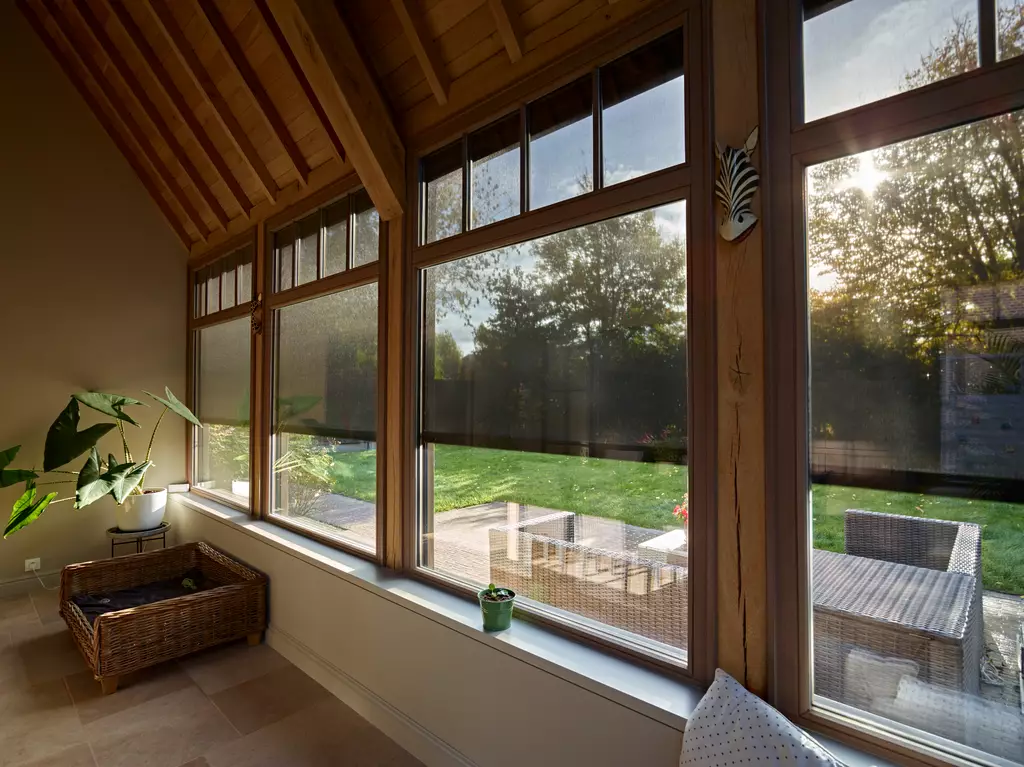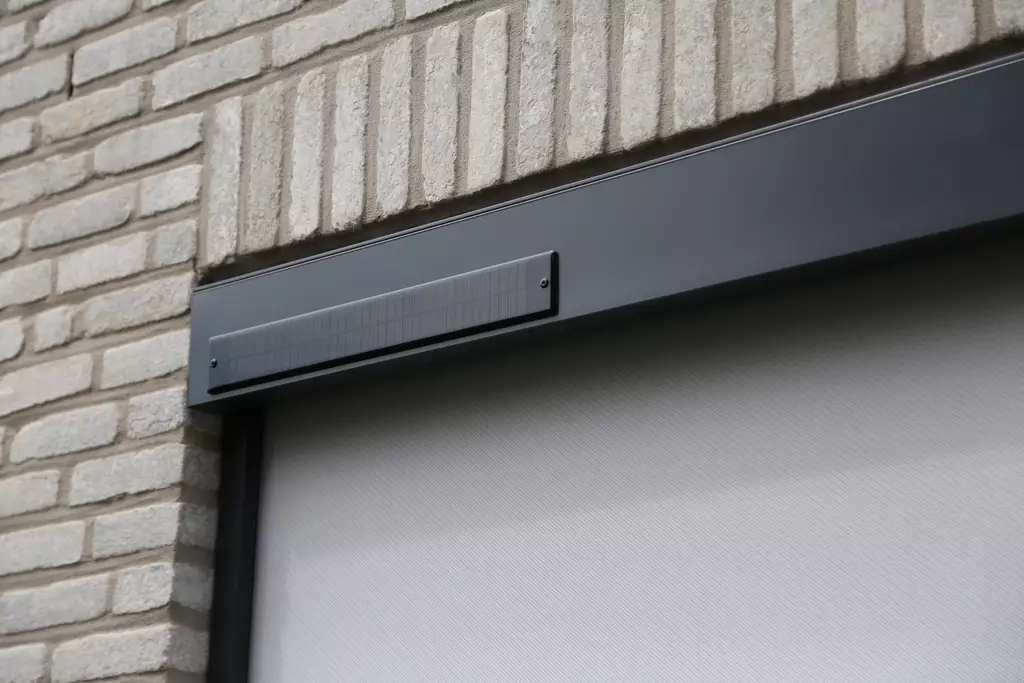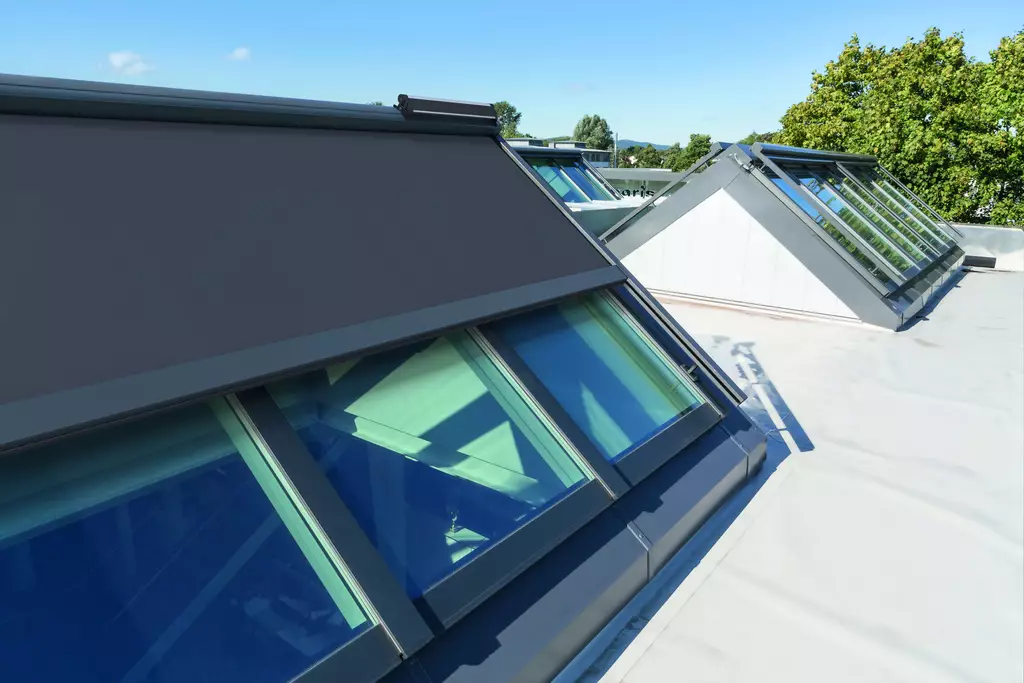
Solar-powered screens
What is solar-powered sun protection?
The use and efficiency of solar-powered screens are more or less the same as with traditional fabric sun protection. The difference lies in a minor but important detail: the sun provides the flow of energy needed to power the motor. Not only do they offer a structural approach to reducing the risk of overheating and provide greater comfort, but solar screens also add greater sustainability to your project. This saves you not only on cooling costs, but also reduces the amount of energy required for usage.
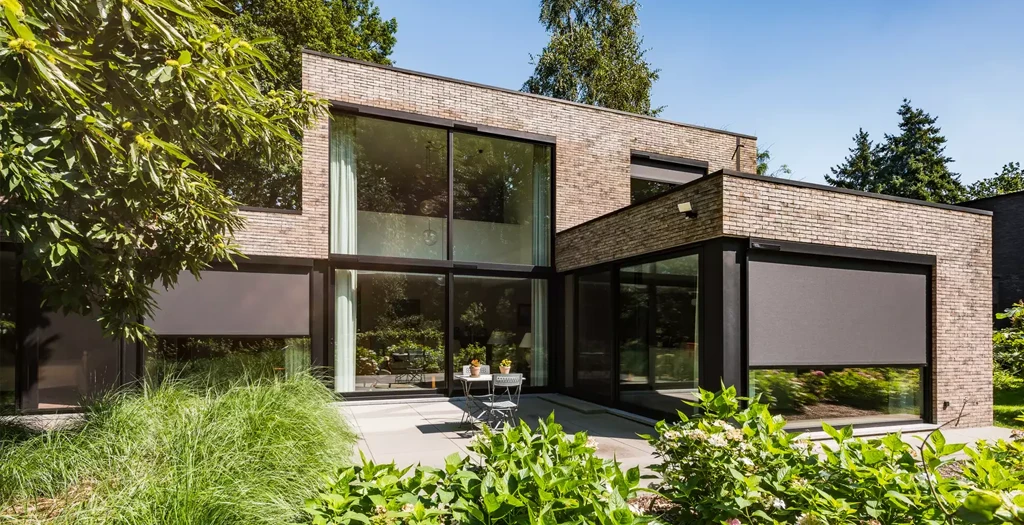
Solar-powered Renson screens
We have the perfect solution for every window and every project, including when it comes to harnessing the power of the sun. Our Solar range lets you take living comfort to an even higher level of sustainability.
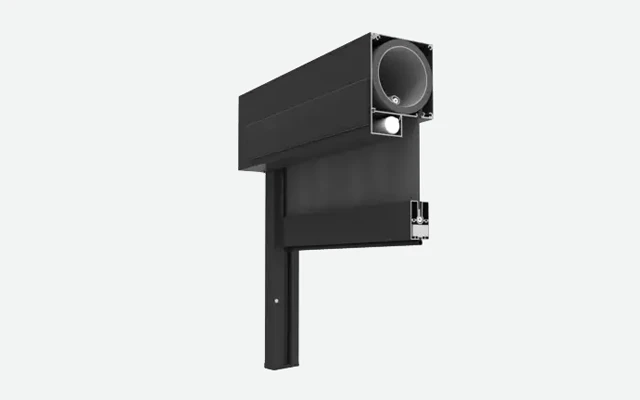
Fixscreen Solar
Endless possibilities with this solar-powered, windproof, surface-mounted screen.
- Suitable for vertical windows
- Up to 10.8 m²
- Wind guarantee up to 130 km/h
- Easy and fast installation
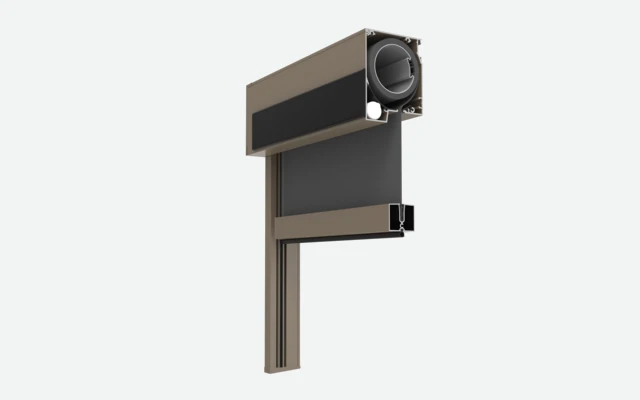
Fixscreen Minimal Solar
Minimalist solar screens for modern architecture with slim joinery.
- Perfect for minimalist architecture
- Up to 10 m²
- Wind guarantee up to 130 km/h
- Easy and fast installation
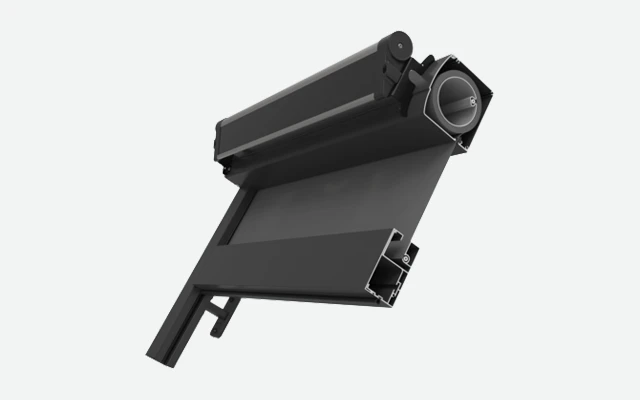
Topfix Solar
Sleek, horizontal, solar-powered sun protection for dormers, verandas, and skylights. The newest addition to our Solar range.
- For horizontal glazing
- Up to 12 m²
- Compact head box dimensions
- Wind guarantee up to 120 km/h
The advantages of solar-powered screens
Now that you know what solar-powered screens are and how they work, you may be wondering why you should choose our Solar range. We’ve put together a list of reasons.

Sustainable choice
Renewable energy is becoming the standard. So, solar sun protection fabrics is a futureproof choice that also has a positive impact on the environment.

Energy-saving
Screens let you avoid having energy-consuming air conditioning running overtime. And by using solar energy to power the motor, you save even more on your energy bill.

Easy installation
No power cables are needed to install your screens. This means no cutting or drilling – and therefore no dust. The installer doesn’t even have to come inside your home.

Comfortable indoor climate
Outdoor fabric sun protection is still the most efficient way to prevent overheating. An added advantage is that screens prevent glare from sunlight. Your comfort is at the forefront of the design.
Frequently asked questions
What do solar-powered screens cost?
A solar-powered screen is slightly more expensive than a regular screen. But installation is often quite a bit cheaper. The reason is that no power system is needed, which means that no drilling or channelling is required. This translates into faster installation and less of an impact on your façade. In other words, the higher purchase price and the lower installation price compensate for each other to some degree. Not only that, but you save on your energy bills in the long term because your screens are powered by renewable energy.
Can I install solar fabric sun protection anywhere?
To guarantee proper functioning, the light-sensitive solar cells need to be continuously exposed to daylight. This means that a solar-powered screen is less effective in areas with overhangs or balconies or next to lush vegetation. But Fixscreen Solar gives you the option of a model with the solar panel on a separate unit . You can use the Somfy Solar app to easily check whether your location is suitable for solar fabric sun protection.
Not sure wheter to go for solar powered Renson® external sun protection ?
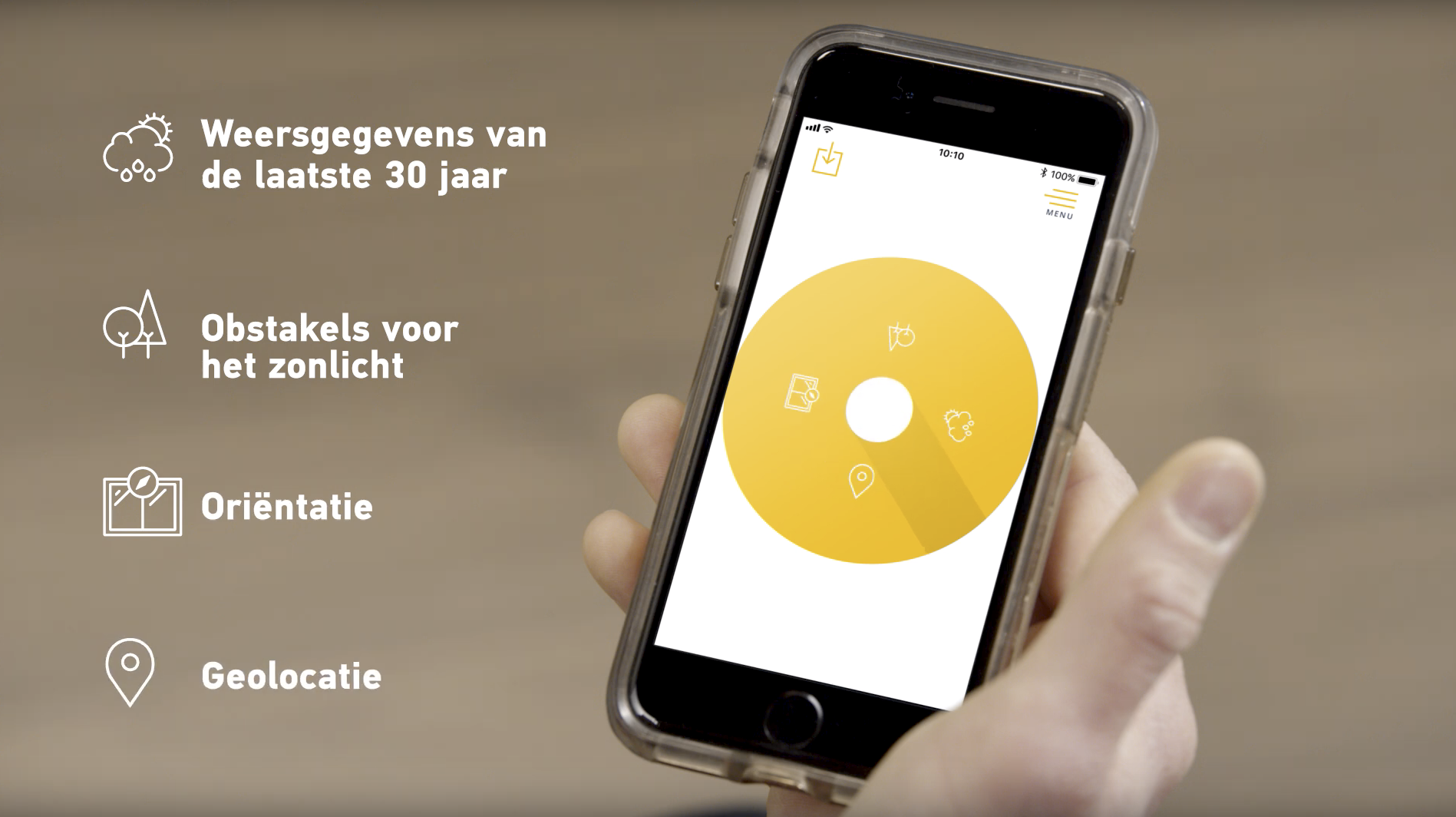
The Somfy Solar app allows you to determine in advance, and in a specific environment, the capabilities of a Solar solution. Available for free in the App store and via Google Play.
Can the solar panel also be installed separately?
The Fixscreen Solar is available in a model with the solar panel on a separate unit. This unit is connected to the screen head box by a five-metre-long cable.
How long does a solar-powered screen battery last?
The number of times the screen can go up and down on a full battery depends on several factors. These include the size and orientation of the screen, temperature, and the angle of the sunrays on the solar cell.
To give you an idea about the batter capacity, we carried out a test with a screen with fibre glass fabric that was 4 metres wide and 2.7 metres high. We charged the battery fully and covered the solar cell. With a fully charged battery, the Fixscreen Solar had a capacity of 86 cycles (opening and closing). The same test with the Fixscreen Minimal Solar resulted in 46 cycles.
Can solar-powered screens also be used during winter?
You can also use solar-powered screens during the winter. The integrated solar cell converts sunlight into energy, so the battery is charged slowly but surely on cloudy days as well. In any case, dozens of opening and closing cycles are still possible with the energy stored in the battery. This means that you will always have enough energy to power the motor. Important: it is not recommended to control the screen during frost or freezing temperatures.
How do you control solar-powered screens?
Just as with regular fabric sun protection, solar screens come with the option of a remote control, wall-mounted remote control, or control via the Renson Connect app. By adding the smart Solmate control , you can make your solar-powered screens smart as well. The fully automatic control – based on your preferences and current cloud data – guarantees a pleasant temperature at home at all times .
What is the warranty term for solar-powered screens?
There is a seven-year warranty on all products in the Renson Solar range. This includes the solar cells.
